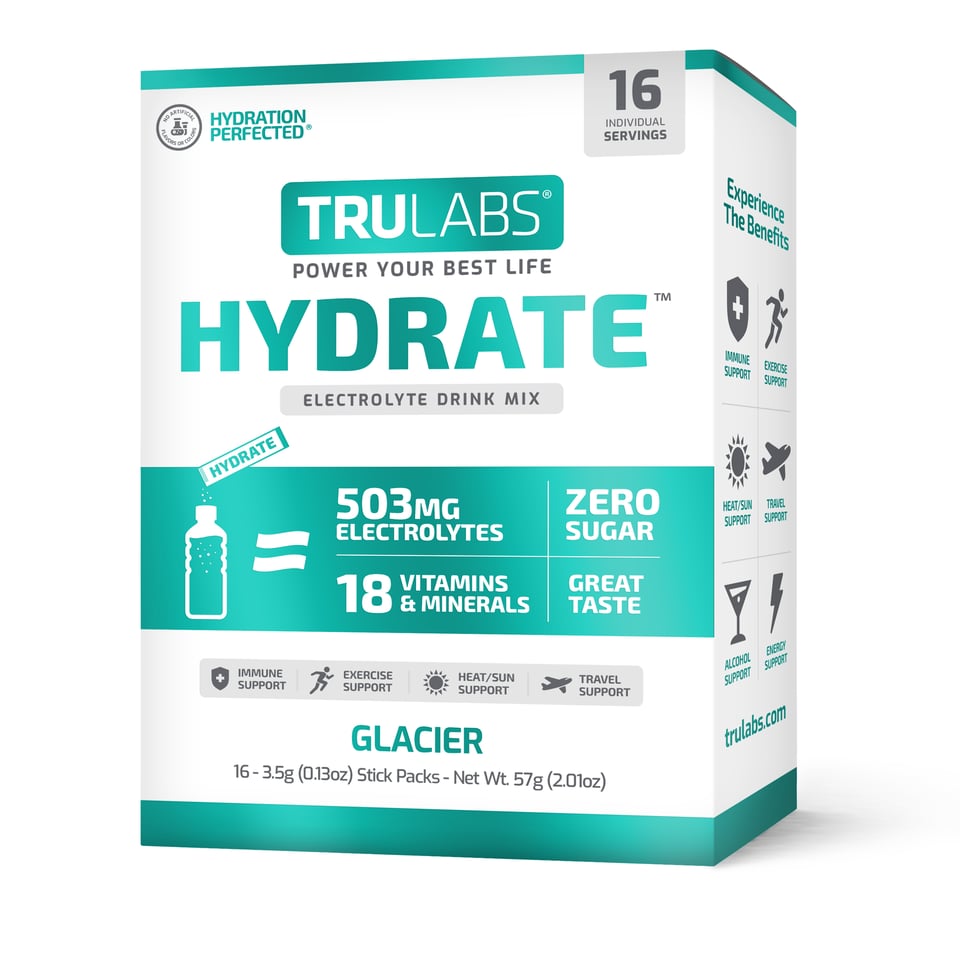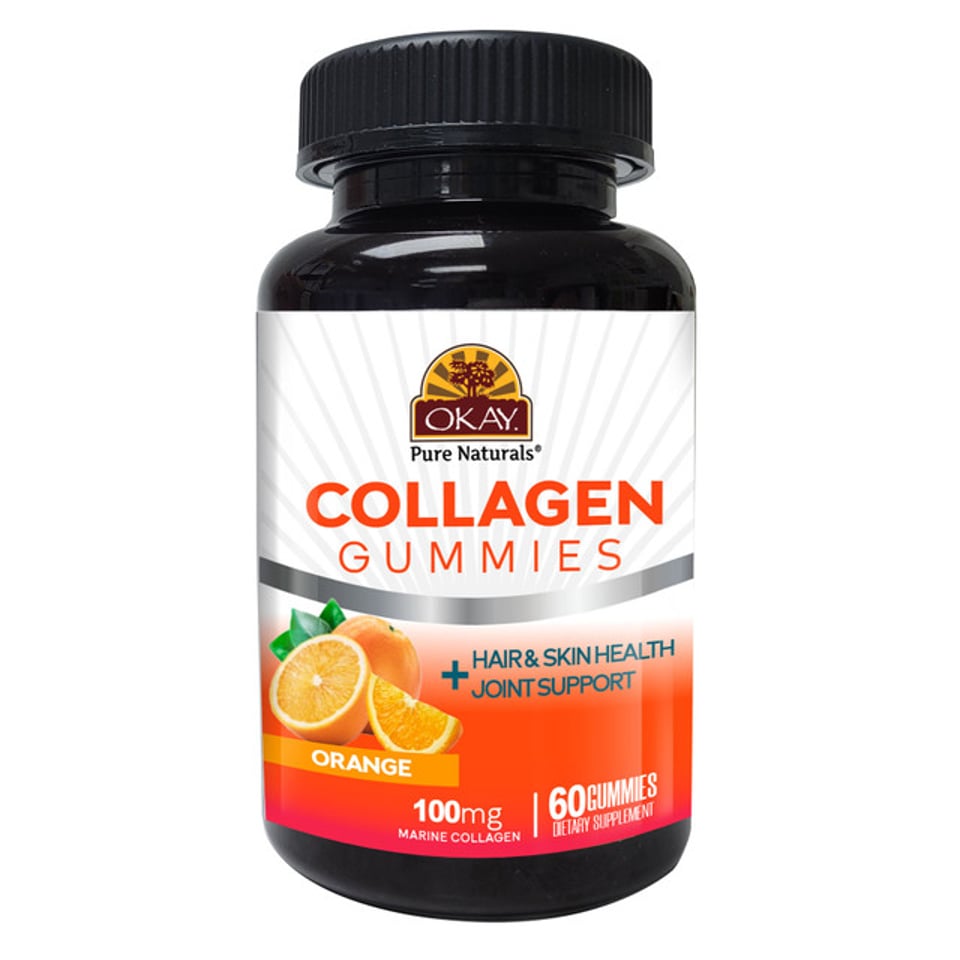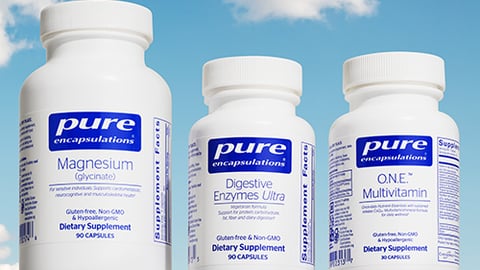6 trends in vitamins and nutritional products
Keeping apprised of trends can offer retail pharmacies and their partners a glimpse into possible opportunities. From discoveries of new ingredient formulations to diversified product availability for various consumer groups, trends in vitamins and nutritional products will continue to develop in 2024.
Miami-based Okay Pure Naturals, which specializes in beauty products, recently began selling gummy vitamins and mineral supplements. Marketing Director Christopher Lopez said the company takes a problem-solution approach when developing products.
“The thing that we’re focusing on, really, is solving the problem, being more open-minded about what ingredients are used to tackle that,” Lopez said. “There are timeless ingredients, and there’s new stuff.” Beyond ingredients, classic and fresh product types and forms are resonating with consumers this year.
1. Multivitamins and vitamin D sales stay strong
In vitamins and mineral supplements (VMS), multivitamins and vitamin D products have become synonymous with the category and remain sought after. A report published by the Centers for Disease Control and Prevention in April 2023 examined dietary supplement use among Americans, focusing on multivitamins and single-ingredient vitamin D supplements.
Between 2017 and March 2020, 31.5% of adults and 23.5% of children and adolescents reported taking multivitamins in the past 30 days, according to the survey. Over the same period, 18.5% of adults and 3% of youth reported taking a single-nutrient vitamin D supplement in the past month. In total, 58.5% of adults and 34.8% of youth took a dietary supplement within 30 days of completing the survey.
In 2024, consumers continue to take multivitamins for immune health, said Bryan Donaldson, chief sales officer at West Hills, California-based Pharmavite, whose brand umbrella covers Nature Made, MegaFood, Equelle, Uqora and Bonafide.
[Read more: CRN adopts guidelines for supplements, functional food sold on e-commerce platforms]
“Given the broad range of benefits they offer, multivitamins tend to be an entry point into the VMS space as many consumers quickly recognize the value of investing in their overall wellness and start exploring more holistic support through supplementation,” Donaldson said.
For Pharmavite, vitamin D products sales are seasonal, increasing in the winter months, Donaldson added. Ultraviolet rays from the sun produce vitamin D3, so people living in cloudy climates do not easily receive as much as those living in sunnier areas in the winter, according to UCLA Health.
2. Gummies on the upswing
Expanding in use beyond children and people who have trouble swallowing pills, gummies are the fastest-growing segment within vitamins and mineral supplements, Donaldson shared.
“Approximately 45% of households now use vitamins in gummy form and we anticipate they’ll be a third of the category by 2025,” Donaldson said. “As such, Pharmavite recently broke ground on a new facility that will manufacture this form for its Nature Made and MegaFood brands and be the site of our Gummy Innovation Center of Excellence, which focuses on product research and development.”
Okay Pure Naturals’ decision to break into gummies marks an extension from the business’s beauty specialization, which Lopez said consists of top-selling, one-ingredient products, including castor oil, coconut oil and shea butter.
Third-party verifications and certifications help gain consumer trust
The vitamin and nutritional product professionals with whom Drug Store News spoke for this story are focused on associating their brands with trust in ingredient sourcing and product manufacturing. One way to achieve this has been by seeking and gaining third-party verifications and certifications.
For Okay Pure Naturals, in addition to halal and kosher certification of its gummies, the company’s vegan certification of gummies caters to consumers who do not eat animals or products from animals for various reasons.
All of TruLabs’ consumable products are vegan, non-GMO, keto-friendly, gluten-free, soy-free, dairy-free, zero sugar, free of artificial flavors and colors and made in the United States with globally sourced ingredients.
Addressing the decision to make products in the United States, Pogue said TruLabs values the country’s high-quality manufacturing processes. All of TruLabs’ nutrition products are manufactured in a facility approved by NSF International, the non-profit organization that tests, inspects and certifies health products, Pogue said.
“If you have to source ingredients from all over the place, you want to make sure that those ingredients are third-party tested and independently verified, that you’re putting in there what you have to do,” Pogue said.
He said TruLabs also sent its products through WERCS assessments, which test product compliance with various regulations and sustainability requirements for retail acceptance, inventory and sale.
“They go through every individual ingredient in every product, from coloring on down, to make sure that it’s safe for the human body, which we already knew it was, but we’ve been verified many, many ways,” Pogue said.
Donaldson shared that many of Pharmavite’s products have been stringently verified for quality by third-party organizations such as the non-profit organization United States Pharmacopeial Convention and published in its annual United States Pharmacopeia (USP). “In fact, Nature Made was first to earn the USP Verified Dietary Supplement mark—independent verification of purity and potency—for many of its products,” Donaldson said.
Although USP verification takes time, cost and effort, he said consumers deserve the assurances it provides. Consumer trust is important in the business world, Donaldson added, stating that this is especially true for the vitamin and supplement industry.
“Pharmavite was founded in 1971 to improve health and wellness by focusing on the basics—complete nutrition through essential vitamins and minerals,” Donaldson said. “Our culture has been rooted in delivering high-quality, science-backed vitamin and supplement solutions ever since, which has earned us the trust of consumers, healthcare professionals, and retailers for over 50 years.”
“The demand really first came about as an extension of our beauty line,” Lopez said.
“The first ones that we came out with were biotin and collagen. It was just a very natural extension of the beauty offerings that we had. We did it with the same ethos within the company, which is natural, clean ingredients.”
Lopez said Okay Pure Naturals’ biotin and collagen gummy products are best-sellers, as are the business’ hair, skin and nails gummies and its multivitamins for men, women and kids,” Lopez said. “It’s a pretty standard assortment at the moment because the thing that we’re using to distinguish them is the fact that they are halal, kosher and vegan as the stand out [qualities].”
3. Product options for religious groups forecasted to expand
Religious practices regarding food preparation and consumption, including kosher diets among Jews and halal diets among Muslims, can extend to vitamins and supplements.
In 2021, the Pew Research Center published a report called Jewish Americans in 2020. The report states: “Fewer than one-in-five U.S. Jews (17%) say they keep kosher in their home, including 14% who say they separate meat and dairy and 3% who say they are vegetarian or vegan.”
Of survey respondents, those within the following demographics said they keep kosher: 95% of Orthodox Jews, 24% of Conservative Jews, 5% of Reform Jews and 6% of Jews without a denominational association.
In a 2007 story published in Drug Store News sister publication Progressive Grocer, Berkeley College marketing professor Dorothy Minkus-McKenna estimated that about 70% of Muslims worldwide follow halal food standards. Globally, between 2024 and 2032, Expert Market Research predicts a 6.7% compound annual growth rate (CAGR) for kosher foods, including supplements, as well as snacks, beverages and other categories. The market research company notes: “The United States has one of the largest kosher food-eating populations across the world.”
Future Market Insights forecasts a 2.8% CAGR between 2023 and 2033 for the United States halal nutraceuticals and vaccine market. Okay Pure Naturals, whose customers comprise multiple demographics in the United States and internationally, have obtained certification for gummies as kosher, halal and vegan, Lopez said.
Of the halal and kosher certifications, Lopez said: “It came about from a lot of our customers—[many] are either from Jewish or Muslim backgrounds. So, we wanted to fulfill those retailers with some sort of supplement option that they can trust.”
4. Hydration supplements gain popularity
The tides of interest are rising for hydration powder and tablet supplements and their availability for drug stores. These hydration products combine water with electrolytes such as sodium, potassium and magnesium to “help regulate and maintain fluid balance in the body,” Melissa Boufounos, a certified holistic nutritionist, told Fortune.
Searches for hydration products on The Vitamin Shoppe’s website increased by 200% between April 2022 and March 2023, according to the retailer’s Health & Wellness Trend Report 2023.
The publication states: “Industrywide, SPINS reports that this category grew by 68% for the 12 months ended March 2023, on top of a 168% increase in the prior year, underscoring the enduring power of this trend.”
The demographics of people purchasing hydration products run the gamut, said Brandon Pogue, founder and CEO of McKinney, Texas-based TruLabs. The company’s best-selling product is Hydrate electrolyte drink mix that contains 18 vitamins and minerals. “I think the hydration space is great because it’s everybody,” Pogue said.
[Read more: Watch DSN: GNC Health ventures into virtual health care]
Pogue began researching nutrition before launching TruLabs in 2018. He said he and his team have been on a mission to help athletes and non-athletes achieve proper hydration, as well as assist them to gain better sleep, workouts, energy and focus through other products.
Addressing dehydration, TruLabs outlined in one of its blog posts that athletes who lost fluid equaling 2% of their body mass experienced reduced mental reasoning, motor coordination and attention spans, citing a 2018 study published in Medicine & Science in Sports & Exercise. Electrolyte imbalances can also cause headaches, fatigue and muscle cramps, according to the Cleveland Clinic.
“One of the other things that is important about that is selenium and some of the other ingredients that we have actually have metal inside of them,” Pogue said. “When you’re drinking copper, you’re actually drinking something that’s going to help your electrons in your nervous system communicate better.”
5. Social media broadens business
Public figures on social media continue to influence vitamin and nutritional product sales. Wellness influencers on TikTok and elsewhere on social media have played a role in driving up magnesium sales for Pharmavite’s Nature Made brand, Donaldson said.
“While not all TikTok trends have validity, magnesium is a great example of a trend that many nutrition experts are getting behind and, ultimately, the integration of TikTok and other social media platforms into mainstream culture has officially cemented VMS into today’s zeitgeist by providing more opportunities to educate and drive awareness of VMS uses and benefits,” Donaldson said.
6. Companies innovate with tastier products
Companies continue to work toward producing better-tasting nutritional products. At TruLabs, controversy surrounding one artificial sweetener led to a new breakthrough: the development of a monk fruit-based sweetener.
Monk fruit is a perennial vine native to southern China, according to a 2019 paper published in Frontiers in Pharmacology. “We’re very big on the efficacy of our products, but also really big on flavor,” Pogue said.
In its zero-sugar drink mixes, TruLabs currently uses the zero-calorie sweetener sucralose. Sucralose is approved as a food sweetener in the United States and regulated by the Food and Drug Administration as a food additive, according to the agency. However, Pogue said negative attention has surrounded sucralose over the past year.
In May 2023, the World Health Organization issued guidance stating that non-sugar sweeteners (NSS), including sucralose, should not be used “to control body weight or reduce the risk of noncommunicable diseases.” According to WHO, a review suggested “use of NSS does not confer any long-term benefit in reducing body fat in adults or children” and that their use can lead to negative effects “such as an increased risk of Type 2 diabetes, cardiovascular diseases, and mortality in adults.”
Pogue said he and his team have not seen problems with sucralose. However, he added: “Because of the pain points of people and our consumers talking about sucralose, it caused us to innovate to solve that problem. Doing that, we actually innovated something that we were completely surprised by, which is a natural-based sweetener that tastes better than sucralose.”
Pogue said TruLabs will premiere its monk fruit-based sweetener in 2024. Changes, Donaldson said, will propel the vitamins and nutritional products industry forward. “In today’s world, as illustrated by consumers’ ever-evolving vitamin and supplement routines, moving the category forward requires agility and the understanding that we need to continuously test, learn, adapt and grow in order to support our consumers,” Donaldson said.
Product Picks
Hydrate Trulabs
TruLabs Hydrate is a zero-sugar, non-GMO electrolyte drink mix that replenishes 18 vitamins and minerals, including five vital electrolytes and 1,082 milligrams of electrolytes.
The brand said it contains five immune system boosters for daily wellness and six B vitamins for a natural energy boost. Hydrate is gluten-free, dairy-free, vegan and soy-free, with no artificial flavors or colors.
Vitamin D Extra Strength 5000 IU (125 mcg) Gummies Nature Made
These gummies offer an extra-strength dosage of the body’s preferred form of vitamin D. The vitamin D3 supplement provides 5,000 IU (125 mcg) per serving to support bone, teeth, muscle and immune health.
It comes in strawberry-, peach- and mango-flavored gummies.
Okay Gummies Collagen 60 Count Orange Flavor
Okay Pure Naturals Okay Gummies Collagen 60 Count Orange Flavor contains 100 mg of marine collagen for hair and skin health and joint support.









